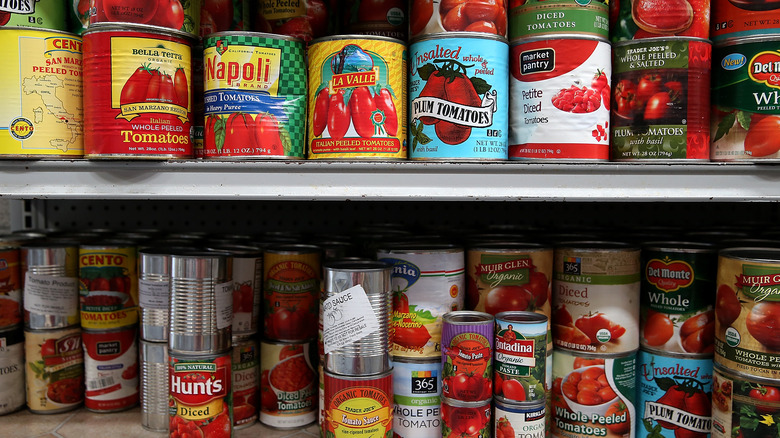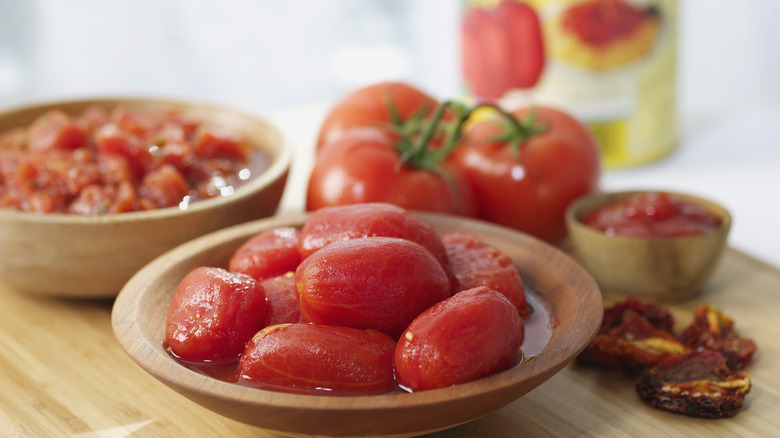The DOP Label On Canned Tomatoes Says A Lot About What's Inside
Most of us think of tomatoes as round red fruits that lead double lives as vegetables. San Marzano tomatoes don't quite fit that mold. These tomatoes, which can only be found in a specific area in Southern Italy, are slimmer, longer, and with a more pointed end than the other fruits of the same name. The qualities that set it apart from other tomatoes aren't just obvious to the naked eye, either.
San Marzano tomatoes have fewer seeds, thicker flesh, and are less acidic than other tomatoes. They also pack less moisture, which means the flavor of this tomato can be much more intense. And that's not all. The tomatoes need to be a specific size, shape, and color when they are picked. And they need to be hand-picked, too.
Small wonder that these unique tomatoes, which can only be found in Campania's Agro Nocerino Sarnese region, were granted a special DOP designation under the European Union's food quality scheme. In order for an ingredient or product to be granted DOP (Denominazione d'Origine Protetta) status — in English, that means protected designation of origin — it needs to come from a specific region and be identified by the government as the producer of these food items.
The production of these items is so tightly controlled they can even come with serial numbers that indicate exactly where they come from. San Marzano tomatoes were given DOP status because they are being grown in an area whose geographic features make the tomatoes what they are.
The growing and canning of San Marzano tomatoes is regulated
Because their production is so tightly controlled, you would expect that the canning and preserving of San Marzano tomatoes is no less regulated. Every authentic DOP package of San Marzano tomatoes will have peeled tomatoes which are either whole or cut in half. They won't be sold in cartons, nor will they come diced or puréed. All of the cans should also have the DOP seal, which might be printed in English as "Protected Designation of Origin" or PDO. The European Union has said this label is compulsory for all food and agricultural products.
Knowing exactly what you'll get when you crack open a can of San Marzano tomatoes is important because back in 2017, it was reported that nearly 95% of tomatoes that were labeled as such were actually fake. "Italians will send tomatoes to the U.S. with no label, and companies here will put a DOP label on. [...] You can't put a USDA Organic label on anything, but DOP is not regulated here [in the U.S.]," food importer Danielle Aquino Roithmayr told Food & Wine then. As such, it's important to pay attention to the details on the label of the tomato can, so you know exactly what you are getting.

